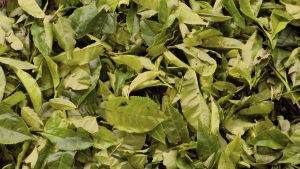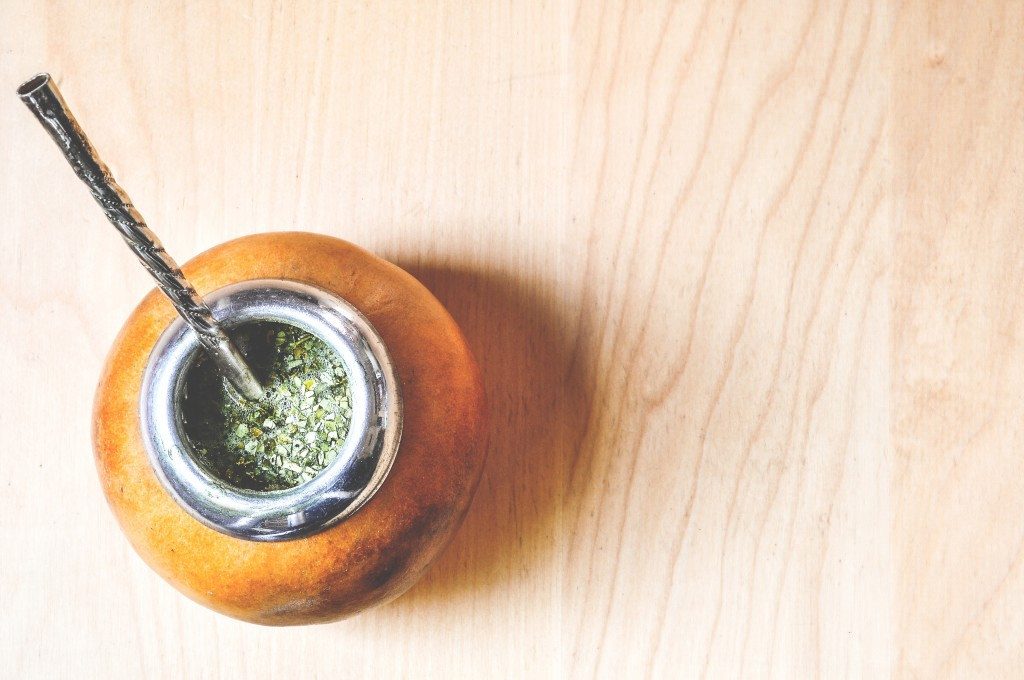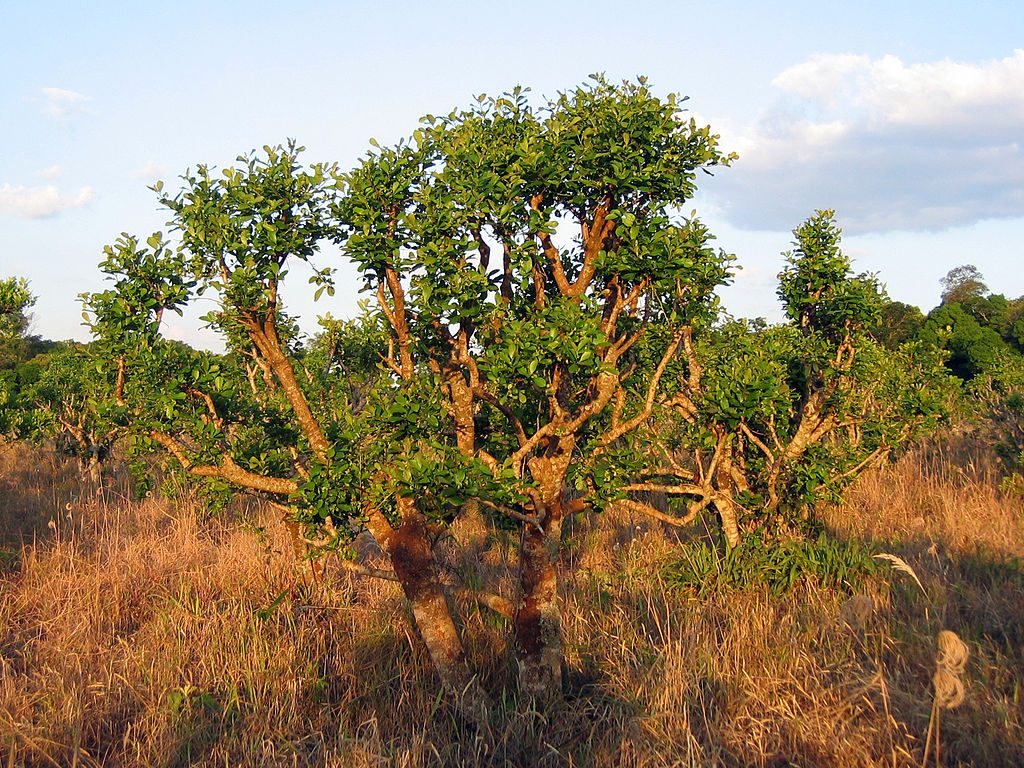Yerba mate can acutely enhance cognitive function similar to coffee and tea.

- Blocking adenosine receptors. This mechanism results in increased energy and decreased sleepiness alongside improved mood, focus, and overall cognition.
Overview
Yerba mate (Ilex paraguariensis) is a South American tree whose leaves are used to make a stimulating tea. Because of its high caffeine content, mate tea is often likened to coffee; however, it is typically described as less anxiety and jiteriness-inducing while maintaining the same stimulating effects.
This is likely due to the fact that yerba mate has a unique chemical composition that includes not just caffeine but many other bio-active ingredients such as theobromine, quercetin, and compounds unique to yerba mate known as matenosides. 1
Mate tea is widely consumed throughout South America, similar to green and black tea and coffee in other parts of the world. It is also used in energy drinks, weight loss products, and other supplements. Clinical research reports that mate has numerous benefits, including:
- Anti-inflammatory activity
- Antioxidant activity
- Cholesterol-lowering effects
- Anti-obesity effects
Despite this, yerba mate’s main use is to stimulate wakefulness, energy, and overall cognitive performance. Because of this, it has been proposed to act as a nootropic similar to caffeine and guarana. However, in comparison to coffee and green tea, yerba mate has seen little medical research.

How Yerba Mate Might Help the Brain
Blocking adenosine receptors
Most of mate’s cognitive benefits are directly tied to its high caffeine content. Caffeine’s main mechanism of action is antagonism (blockade) of the receptors for adenosine – a neurotransmitter that makes you feel tired and sleepy. This not only prevents adenosine’s effects, but also increases the activity of dopamine, serotonin, acetylcholine, norepinephrine, and other neurotransmitters associated with well-being, alertness, and energy. 3 In addition, blockade of adenosine may also help alleviate Parkinson’s. 4
Antioxidant activity
Yerba mate contains multiple compounds – most notably polyphenols such as caffeic and chlorogenic acid – with antioxidant qualities. In turn, these antioxidants help protect the brain from age-related neurodegenerative disorders such as Parkinson’s and Alzheimer’s. 5 6

Yerba Mate vs Coffee vs Tea
Yerba mate’s chemical composition shares similarities with both coffee and green/black tea:
- Similar to coffee, it contains high levels of xanthines, most notably caffeine, theobromine, and theophylline
- Similar to tea, it has a rich polyphenol content and contains some of the same polyphenols, such as kaempferol
This explains why mate is often said to evoke effects attributed to both of these drinks, but is still quite distinct in its own right.
Yerba Mate’s Nootropic Uses & Benefits
Yerba mate is not a nootropic per se, but it is used to enhance brain function for several hours following consumption just like tea and coffee. And although there isn’t much research on the cognitive effects of yerba mate, we do know that its main active ingredient is caffeine, which is known to boost:
- Energy levels
- Focus & alertness
- Wakefulness
- Mood
In addition, the presence of many other active compounds may also give mate some unique properties. For example, mate enthusiasts propose that mate has a less jittery and more focused feeling than coffee, and some even suggest that it has mild psychoactive properties. However, because of the lack of research into mate’s cognitive effects, these and other claims remain untested.
In addition, preliminary research suggests that yerba mate may help protect the brain from neurodegenerative disorders such as Alzheimer’s and Parkinson’s.

Research
Animal and Petri Dish Research
Some early studies suggest that yerba mate may help protect the brain from neurodegenerative conditions. Moreover, most of its cognition-boosting effects can be attributed to caffeine, which is one of the most researched compounds in the world. On the whole, however, there is little research on yerba mate’s nootropic effects.
Yerba mate extract appears to improve short-term memory in rats
This study was one of the few to examine the cognitive effects of yerba mate. The researchers administered yerba bate mate extract to mice and tested their short and long-term memory and learning through several tests. Low-to-intermediate doses (62.5 to 125 mg / kg body weight) were found to improve short-term memory.
- The researchers concluded that “These results partly substantiate the traditional use of mate tea for improvement of cognition…“7
Yerba mate extract may protect against Parkinson’s
This study tested the efficacy of yerba mate extract in a mouse model of Parkinson’s. The animals were split into different treatment groups and administered MPTP and reserpine – two compounds that induce symptoms of Parkinson’s – as well as yerba mate extract at varying doses. The extract was found to prevent the effects of both MPTP and reserpine at doses of 250 and 500 mg per kg of body weight.
- The researchers concluded that “hydroalcohol extract of Ilex paraguariensis may have an antiparkinsonian profile in animal models, probably through its antioxidant activity and antagonist action on adenosine A(2A) receptors.” 8
Yerba mate extract may suppress AGE formation, which has been linked to neurodegenerative disorders
This study examined the effects of yerba mate extract on advanced glycation end products (AGEs) – naturally-formed compounds that may play a role in aging and age-related neurodegenerative disorders such as Alzheimer’s. The researchers found that compared to green tea, yerba mate extract had a significant effect on AGE formation.
- The researchers concluded that “…our results demonstrate a significant, dose-dependent effect of water extracts of I. paraguensis on AGE adducts formation…“9
Human Research
There are currently no human studies looking at the nootropic effects of yerba mate.
Nootropic Dosage
- There isn’t enough human research to suggest a nootropic dose
- Most supplements supply 450 – 500 mg of yerba mate leaf extract
Available Forms
- Yerba mate is mainly consumed in the form of tea and energy drinks
- Yerba mate leaves can be come in dried, powder, extract, capsule or tablet forms
- Yerba mate is often combined with other tea herbs such as ginger and green tea
Supplements in Review Says
- Yerba mate tea as a nootropic.
Yerba mate tea provides a reliable cognitive boost similar to coffee and tea. Although there’s a lack of research on mate’s cognitive benefits, its high caffeine content can be expected to provide a reliable boost in wakefulness, energy, mood, and focus similar to a cup of coffee or tea.
Yerba mate tea seems to be the best form. Given the lack of human research and the long history of mate consumption, we recommend taking yerba mate in its most popular form – as tea.
Leave a Reply